Home Tags Posts tagged with "Classical music"
Classical music
‘Contemporary music’ is a very vague term. It means different things to different people. In fact, governments around the world have actually brought specialists together to try and create a definition of what it is, and they have so far struggled to come up with something that is acceptable to everybody. Most, however, have defined it as being music that is being performed, recorded and written in the present time. As such, it can include any type of genre, such as country, blues, dance, electronic, folk, experimental, funk, jazz, hip hop, pop, metal, roots, rock, world and more. In fact, even classical music can be included in it, so long as it is written, recorded and/or performed today.
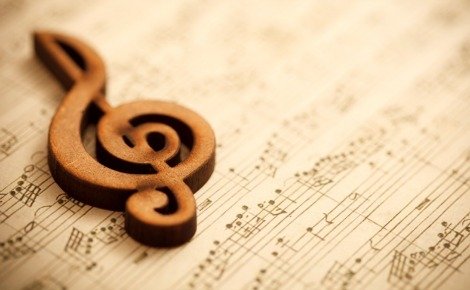
Photo Source: hellostage.com
What Do You Learn at College?
A lot of people interested in learning about music are considering entering contemporary music college. But considering the vague and wide definition listed above, it becomes very unclear what they will actually learn while they are there. You may be surprised to find out, therefore, that you will earn a huge variety of different things and that you will have many choices in terms of the programs you can follow.
Perhaps you are interested in performance programs, for instance, of which there are many. This will teach you how to take to the stage and actually become a performing artist. It is up to you to decide the genre and instrument or instruments you would want to play on stage. While you will learn about contemporary music performance, much of the curriculum will be based on traditional disciplines of music, which still influence the world today.
Or perhaps you are more interested in working in the entertainment industry. Not everybody who is interested in contemporary music wants to be a composer or performer, after all. You may be far more interested in the actual creation of music that is written by others. Perhaps you want to start a recording studio or manage a band, for example.
There are also alternative programs, which are far more flexible. These are an opportunity for you to pick and choose the elements that you are personally interested in, creating a program that is all about you and your own strengths. Because contemporary music is so wide-ranging, it stands to reason that degree programs are equally wide and flexible.
These are just a few of the options available to you. It is important to understand that contemporary music is a true discipline that people learn about. It has transcended the world of Julliard, for instance, where people learn about classical music and techniques in today’s world. While that is still important and relevant, it is equally important to bring the modern world into the classical, thereby creating a new discipline in which the music of Mozart is as important and valued as that of Beyonce, for instance. Music is a form of art and a form of expression, in which all genres are valued equally.
Conductor and composer Lorin Maazel has died from complications of pneumonia at his home in Castleton, Virginia, aged 84.
Lorin Maazel occupied top positions at the Vienna State Opera and the New York Philharmonic, which he accompanied on a 2008 tour of isolated North Korea.
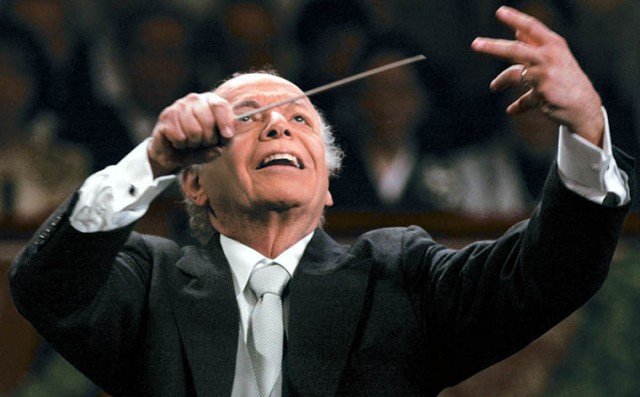
Lorin Maazel occupied top positions at the Vienna State Opera and the New York Philharmonic
In 2009, Lorin Maazel and his wife founded the Castleton Festival, which aims to showcase classical musicians at the start of their careers.
Lorin Maazel was admired for the precision and rigour of his conducting.
According to a 2011 profile in The Guardian newspaper, Lorin Maazel had a powerful memory and became known for performing without a score.
Lorin Varencove Maazel was born in Neuilly-sur-Seine, France, in 1930. As well as conducting, he also composed music, producing an opera based on George Orwell’s novel, 1984.
[youtube Fb5OfLMpsuA 650]
“Japan’s Beethoven” Mamoru Samuragochi has admitted he is not totally deaf, amid an ongoing scandal over his use of a ghostwriter.
Composer Mamoru Samuragochi said in a statement to Japanese media that he regained some of his hearing three years ago.
Mamoru Samuragochi shot to fame in the 1990s and is most famous for the piece Hiroshima Symphony No 1, dedicated to those killed in the 1945 atomic bomb.
Last week, music teacher Takashi Niigaki said he composed music for Mamoru Samuragochi.
Takashi Niigaki said last week that he had worked with Mamoru Samuragochi for nearly two decades and had composed his critically-acclaimed works, including Hiroshima Symphony No. 1.
The music teacher also said that he saw “no signs” Mamoru Samuragochi could not hear.
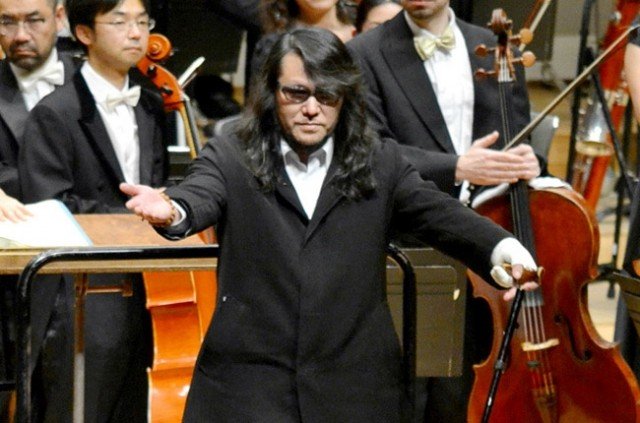
Mamoru Samuragochi has admitted he is not totally deaf
In his statement on Wednesday, Mamoru Samuragochi, 50, said his hearing had improved and he could follow conversations under certain conditions.
“In recent years I have started to be able to hear a little bit more than before… since about three years ago I can hear words if people speak clearly and slowly into my ears,” he said.
“It is true that I received a certificate proving I had a hearing disorder and that I couldn’t hear anything up until three years ago.”
Mamoru Samuragochi said he would be issuing a public apology.
“I feel deeply ashamed of myself for living a false life,” he said.
His now defunct website stated he was taught how to play the piano by his mother when he was four and began playing Beethoven and Bach when he was 10.
Mamoru Samuragochi reportedly lost his hearing when he was 35 but continued to compose music, apparently relying on his “absolute pitch”. His Hiroshima Symphony No 1, completed in 2003, became a major classical music hit, selling more than 100,000 copies in Japan.
[youtube rrM8Hy9yQxY 650]
Mamoru Samuragochi, a deaf composer who has been dubbed “Japan’s Beethoven”, has admitted hiring someone else to write his music for nearly two decades.
Mamoru Samuragochi, 50, shot to fame in the mid-1990s and is most famous for his Hiroshima Symphony No 1, dedicated to those killed in the 1945 atomic blast.
He has now confessed he has not composed his own music since 1996.
The real composer of the musician’s “hits” has not been formally named.
According to his now defunct website, Mamoru Samuragochi was taught how to play the piano by his mother when he was four and began playing Beethoven and Bach when he was 10.
Mamoru Samuragochi made his first breakthrough creating music for video games including Resident Evil and Onimusha.
He completely lost his hearing when he was 35 but continued to compose music, apparently relying on his “absolute pitch”.

Mamoru Samuragochi shot to fame in the mid-1990s and is most famous for his Hiroshima Symphony No 1
Mamoru Samuragochi’s Hiroshima Symphony No 1, completed in 2003, became a major classical music hit, selling more than 100,000 copies in Japan.
It went on to become an anthemic tribute known informally as the “Symphony of Hope”, after Mamoru Samuragochi was filmed meeting survivors in the tsunami-battered Tohoku region in 2011.
Apologizing on his behalf, Mamoru Samuragochi’s solicitor said the musician was “deeply sorry as he has betrayed fans and disappointed others”.
“He knows he could not possibly make any excuse for what he has done. He is mentally distressed and not in a condition to properly express his own thoughts.”
Japanese broadcaster NHK quoted Mamoru Samuragochi saying: “I started hiring the person to compose music for me around 1996, when I was asked to make movie music for the first time.
“I had to ask the person to help me for more than half the work because the ear condition got worse.”
It is believed Mamoru Samuragochi paid for the commissions while giving the ideas for his work to the other composer.
“I’ve been told that there are certain circumstances that make it hard for the person [who composed the works] to come out in public,” his lawyer said.
“Samuragochi has therefore come to describe himself as the sole composer.”
Although the identity of the “ghost” composer has not been formally identified, Japanese media has named him as music teacher Aragaki Takashi.
Japanese Winter Olympics hopeful, figure skater Daisuke Takahashi, has also been caught up in the scandal as his program includes a dance to Mamoru Samuragochi’s Sonatina for Violin – also not penned by the musician.
Nippon Columbia, Mamoru Samuragochi’s record company, said it was “flabbergasted and deeply infuriated” by his revelation.
[youtube ZvnD3GMrqe0 650]
British composer John Tavener has died at the age of 69.
Sir John Tavener, one of the leading British composers of the past 50 years, was known for music that drew on his deep spirituality.
In 1992, The Protecting Veil topped the classical charts for several months and in 1997 John Tavener’s Song For Athene was played at the funeral of Princess Diana.
John Tavener had suffered ill health for much of his life, including a major heart attack in 2007. He died at his home in Child Okeford, Dorset, on Tuesday.
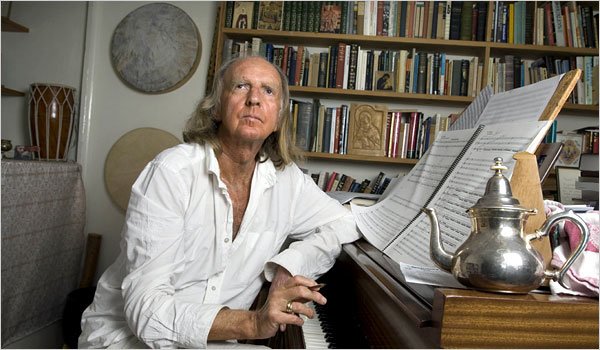
John Tavener, one of the leading British composers of the past 50 years, was known for music that drew on his deep spirituality
He made his name with the avant-garde oratorio The Whale, which was released by The Beatles on their Apple label in 1968.
John Tavener went on to become one of the few contemporary composers to find wide acclaim beyond the classical world.
His other well-known works included his setting of William Blake’s poem The Lamb and A New Beginning, which was chosen to see in the new century at the end of 1999 in the Millennium Dome in London.
John Tavener was nominated for the prestigious Mercury Prize twice – in 1992 and 1997 – and was knighted in 2000.
Having started his musical career as a teenage organist at a Presbyterian church in London, John Tavener converted to the Russian Orthodox Church in 1977 and once said that “my way towards God has been to write music”.
John Tavener was also known for his imposing 6ft 6in frame and his flowing hair. As well as music, one of his great passions was luxury cars.
He had suffered a stroke in 1979, and in 1990 was diagnosed with Marfan Syndrome, a hereditary condition that can cause heart defects.
In 2007, John Tavener suffered a heart attack that caused him to spend six months in intensive care.
John Tavener defied doctors who did not expect him to return to work, and in his last months described composing as a welcome distraction from constant pain.
Conductor Daniel Barenboim is stepping down as musical director of La Scala opera house two years early at the beginning of 2015.
Stephane Lissner, superintendent of Milan’s La Scala, called Daniel Barenboim’s departure the “end of an era”.
Daniel Barenboim joined the world-renowned opera house in 2006 before becoming musical director in December 2011.
Unconfirmed reports in Italian media suggested he will be succeeded by Milanese conductor, Riccardo Chailly.
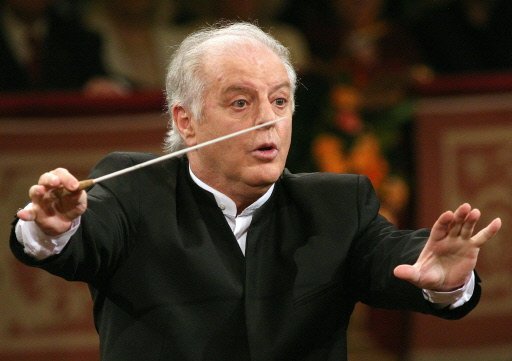
Conductor Daniel Barenboim is stepping down as musical director of La Scala opera house two years early at the beginning of 2015
Stephane Lissner is also leaving La Scala in August 2014 to manage the Paris Opera and will be succeeded by Alexander Pereira, the Austrian artistic director of the Salzburg Festival.
Alexander Pereira previously indicated that he would like an Italian to be the next musical director and Italian media suggested Riccardo Chailly would be his choice.
Israeli-Argentine Daniel Barenboim, 70, will continue to work on his many other projects, including establishing an academy for Israeli and Palestinian musicians and overseeing an academy for young musicians in Berlin, housed in a concert hall built by architect Frank Gehry.
Some of Daniel Barenboim’s commitments at La Scala in 2014 include Rimsky-Korsakov’s The Tsar’s Bride, Cosi Fan Tutte by Mozart and Verdi’s Simon Boccanegra.
Daniel Barenboim will open the 2014-15 season with Fidelio, Beethoven’s only opera.
[youtube ncbHEKkdxIM 650]






